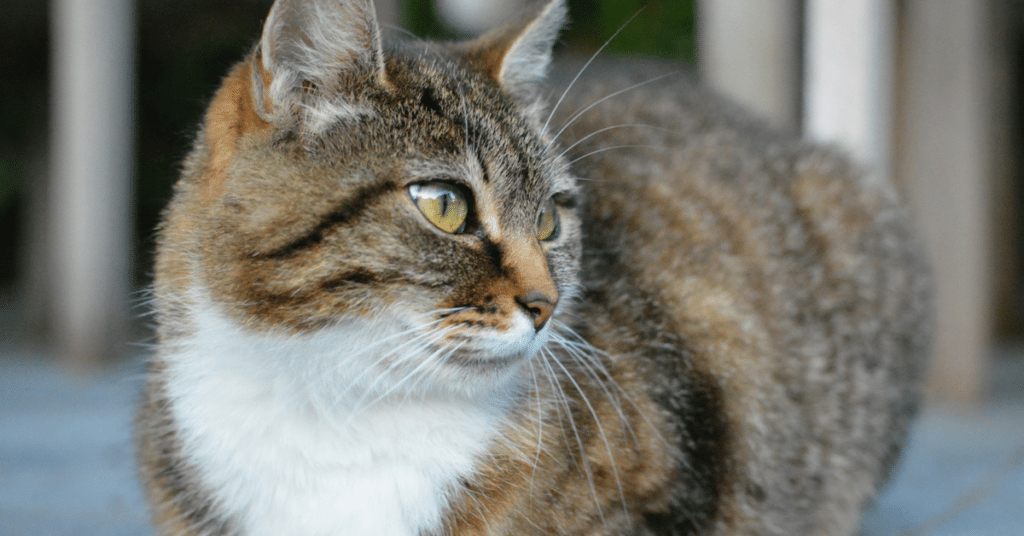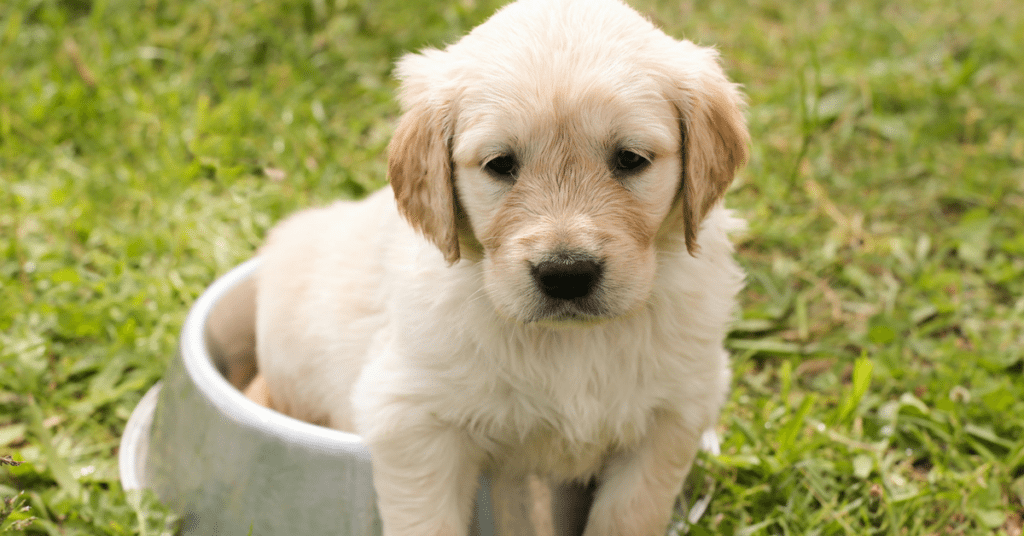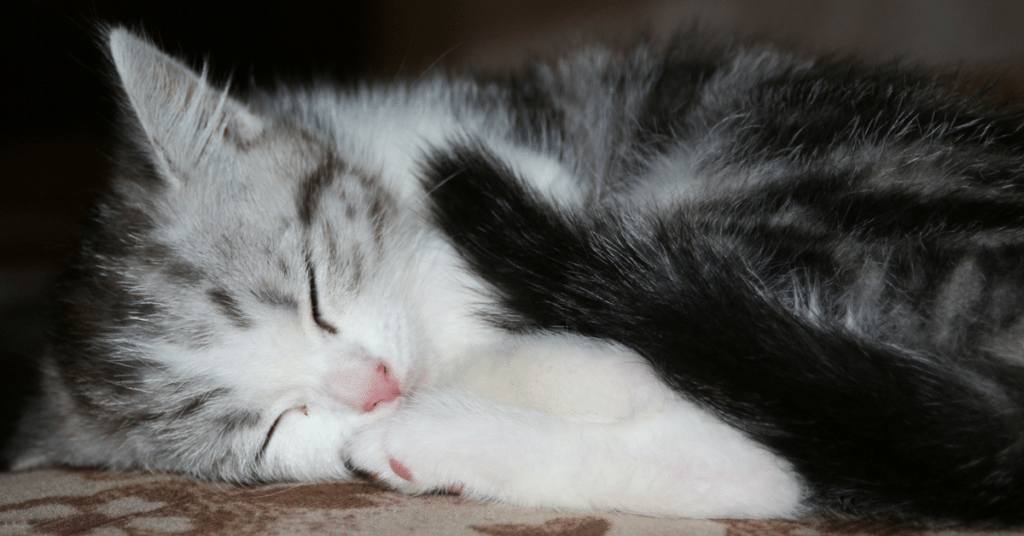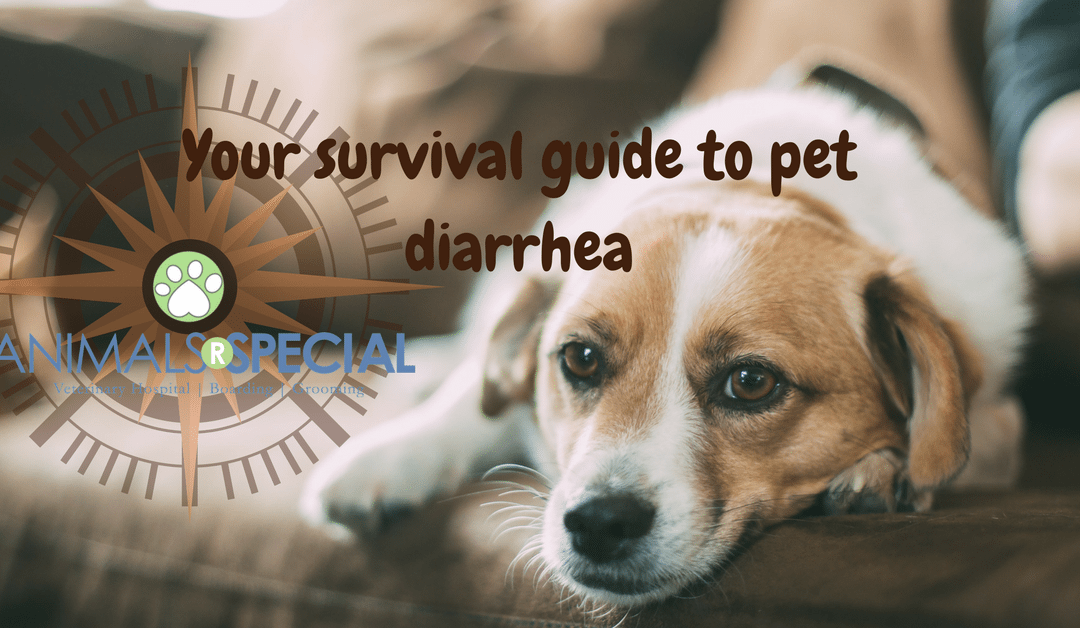So your pet has diarrhea, what should you do? Follow along for Dr. Wagner’s diarrhea survival tips!
Diarrhea is not a topic anyone likes to discuss, but if you own a pet, chances are you have found yourself in a stinky situation. Diarrhea is a common problem that affects many patients. Diarrhea can vary in frequency, duration, and intensity. You may not be able to totally prevent diarrhea, but knowing as much as possible might help limit the number times your pet has one of these unpleasant episodes.

The Dirty Details
Why does my pet have Diarrhea?
Dietary Indiscretion
Eating too much, eating food or treats that are new, eating spoiled food or garbage, and eating foreign material like mulch.
Change in Your Pet’s Diet
Changing your pet’s diet can cause an upset belly and ultimately lead to diarrhea. Transitioning your pet’s food slowly over the course of a week or more is the key to a smooth change.
Food Allergy or Intolerance
Food allergies can take months or even years for your pet to develop and most pets actually develop an allergy to the protein source in the food. Pets with food allergies can develop GI upset with vomiting and diarrhea.
Parasites
Parasites like roundworms,hookworms, and whipworms are just a few of the common parasites that can cause diarrhea. Visit: The Companion Animal Parasite Council for more information about parasites found in our pets.
Here in New Albany,Ohio, Dr. Wagner has been seeing many pets infected with Giardia. Giardia is a microscopic parasite and is found on surfaces or in soil, food, or water that has been contaminated with feces from infected animals. Giardia is protected by an outer shell that allows it to survive outside the body for long periods of time and makes it tolerant to many conditions. While the parasite can be spread in different ways, water (drinking water and recreational water) is the most common mode of transmission. Testing for Giardia is simple and effective. Our laboratory uses specialized testing of your pet’s fecal matter to identify Giardia.
Toxicity
Sometimes pets consume substances that can be toxic to them.These toxicities can cause diarrhea, vomiting and even more serious complications. The ASPCA Pet Poison Helpline is here to help! Keeping toxic substances out of reach from your pet is the key to keeping them safe!
Bacterial Infections
Bacterias like salmonella, Clostridium and Campylobacter can cause significant upset including GI discomfort. Testing for these bacterias is easy and effective with just a small fecal sample from your pet.
Underlying Illness
Inflammatory Bowel Disease, Pancreatitis, and Parvovirus are just a few of the MANY Illnesses that can cause your pet diarrhea.

What can I do at home?
Limit Food
With-hold food for 12-24 hours while providing small frequent amounts of water to allow the GI system to settle and reset.
Prebiotics & Probiotics
PREbiotics are basically food for the good bacteria that is in your pet’s belly. PREbiotics are found in very specific fiber that is formulated with our Hills Science Diet I/D intestinal diet. PREbiotics will help stimulate the growth and activity of the good bacteria existing in you pet’s belly. PRObiotics are live baterica cultures, so they are to replenish and restore good bacteria to your pet’s belly. PRObiotics can come in many ways and can be readily available at any pet store. The idea of using PRE and PRObiotics is to help maintain and establish a health gut which can aid in resolving diarrhea. Although HUMAN probiotics will not harm your pet, because gut bacteria is specific to cat, dog and other species it will not be effective.
Hills Science Diet I/D Intestinal Diet
I/D is a highly digestible diet that is packed full of PRE and PRObiotics. I/D is also high in B vitamins and electrolytes to help when your pet is losing fluids from diarrhea and even vomiting. I/D is a complete and balanced diet and can be used for puppys, kittens and adult pets.

When do I call Dr. Wagner and the staff at Animals R Special?
If you pet has other symptoms like:
Vomiting
Dry or Tacky Gums
Pale Gums
Acting Lethargic
or has a Fever
WHEN IN DOUBT ALWAYS GIVE US A CALL! We are always here to help when your pet is not feeling well!


